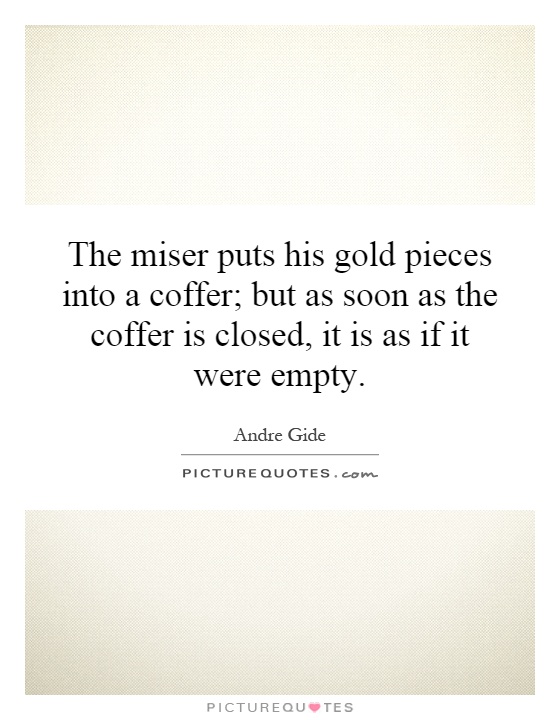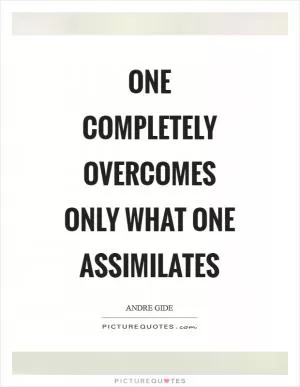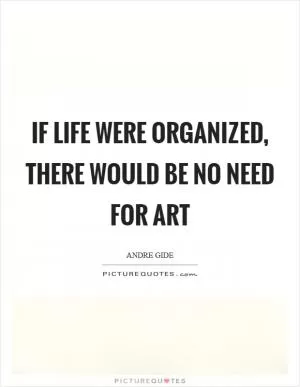The miser puts his gold pieces into a coffer; but as soon as the coffer is closed, it is as if it were empty

The miser puts his gold pieces into a coffer; but as soon as the coffer is closed, it is as if it were empty
In the context of André Gide, the quote "The miser puts his gold pieces into a coffer; but as soon as the coffer is closed, it is as if it were empty" can be interpreted in various ways. Gide was a French author and thinker known for his exploration of moral and philosophical themes in his works. This quote reflects his interest in the complexities of human nature and the ways in which people can deceive themselves.One interpretation of this quote in relation to Gide's work is that it speaks to the idea of material wealth and its fleeting nature. The miser, in his relentless pursuit of accumulating gold, believes that he is securing his future and ensuring his happiness. However, once the coffer is closed and the gold is out of sight, it loses its value and meaning. The wealth that the miser has hoarded becomes meaningless and empty, as it does not bring him the satisfaction and fulfillment he had hoped for.
This idea can be seen in Gide's novel "The Immoralist", where the protagonist Michel embarks on a journey of self-discovery and liberation from societal norms. Michel, like the miser, initially believes that material wealth and social status will bring him happiness. However, as he delves deeper into his desires and explores his true self, he realizes that true fulfillment comes from within and cannot be bought or hoarded.
Another interpretation of this quote in relation to Gide's work is that it speaks to the idea of self-deception and the ways in which people can deceive themselves about their own motivations and desires. The miser, in his obsession with gold, may convince himself that he is acting out of necessity or prudence. However, once the coffer is closed and the gold is out of sight, he is forced to confront the emptiness and futility of his actions.
Overall, this quote in the context of André Gide's work serves as a reminder of the dangers of materialism, self-deception, and the importance of seeking true fulfillment and meaning in life. It challenges readers to question their own motivations and desires, and to seek out deeper truths beyond the superficial trappings of wealth and status.












 Friendship Quotes
Friendship Quotes Love Quotes
Love Quotes Life Quotes
Life Quotes Funny Quotes
Funny Quotes Motivational Quotes
Motivational Quotes Inspirational Quotes
Inspirational Quotes